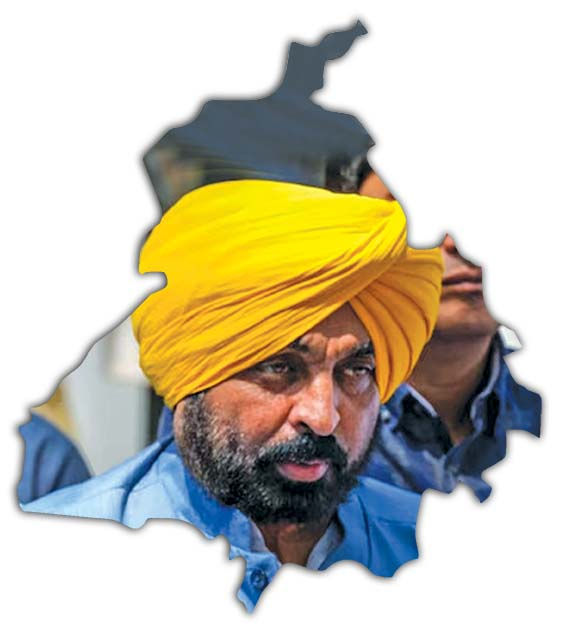A Crumbling Fort
- Correspondent
- Feb 12
- 3 min read
Updated: Feb 14
Arvind Kejriwal’s Delhi debacle has set off tremors in Punjab, where his party faces mutiny, mid-term poll threats and the spectre of irrelevance.

The Aam Aadmi Party (AAP), which once stormed Punjab with a landslide victory, now finds itself in a perilous state. The party’s humiliating defeat in the recent Delhi Assembly elections has triggered a domino effect, leaving Punjab Chief Minister Bhagwant Mann struggling to keep his flock together. The grand assertions of party unity from both Kejriwal and Mann have done little to quell murmurs of discontent, with opposition parties sharpening their knives and predicting a split. If AAP’s leadership does not act swiftly, the party could suffer the same fate in Punjab as it did in Delhi.
The choice of venue for the AAP’s latest crisis meeting - a gathering of Punjab MLAs at Kapurthala House, the official residence of the Punjab CM in Delhi - has triggered frenzied speculation. Critics have questioned why the party, which claims to be a paragon of transparency and good governance, would hold a state-focused meeting outside the very state it governs. The symbolism was inescapable: Punjab continues to be run from Delhi. The Shiromani Akali Dal (SAD) wasted no time in attacking Mann, accusing him of being a mere puppet, while the Congress declared that a mid-term election was imminent.
The opposition’s confidence is not without basis. The rumblings of revolt within AAP’s Punjab unit are growing louder. Congress leader Partap Singh Bajwa has claimed that more than 30 AAP MLAs are in touch with his party, while AAP’s own Rajya Sabha MP, Swati Maliwal, has painted a grim picture of corruption under Mann’s administration. Allegations of sand mining scandals, pay-for-posting schemes and bureaucratic chaos have undermined the party’s credibility. Maliwal’s scathing remarks about Kejriwal treating Punjab as his personal ATM suggest that the infighting within AAP is no longer confined to whispers in closed rooms.
Kejriwal’s conspicuous presence in the state’s affairs, coupled with rumours that he may contest from Ludhiana, has further unsettled the ranks. The speculation that he might replace Mann has rattled AAP’s Punjab unit, which was already wary of the Delhi-centric leadership.
The irony is that AAP’s crisis in Punjab is largely self-inflicted. The party came to power on the back of a massive anti-incumbency wave against traditional players like the Congress and SAD, promising governance free from dynastic politics and corruption. Instead, its tenure has been marred by allegations eerily similar to those that brought down its predecessors. The much-touted ‘Delhi model’, which AAP had hoped would be its electoral trump card, now lies in tatters, with voters in the capital delivering a resounding verdict against it. The party’s failure to implement key promises in Punjab, such as providing Rs 1,000 per month to women, has only added to the disillusionment.
AAP’s predicament is not merely a regional crisis but a cautionary tale for all political newcomers. The party’s rise was meteoric, but its governance model has struggled to adapt beyond Delhi’s municipal politics. In Punjab, where political loyalties are fluid and identity politics run deep, Kejriwal’s outsider status has become a liability.
For Mann, the road ahead is fraught with challenges. His authority is being questioned not only by the opposition but within his own party. The optics of his visibly strained demeanour after the Kapurthala House meeting did little to inspire confidence. Even his signature joviality appeared to have deserted him.
While Mann insists that AAP remains strong in Punjab, the party’s detractors see a government on borrowed time. The exodus of MLAs to the Congress, if it materializes, could spell doom. The ultimate test will be whether AAP can regain public trust before the next election.
The party’s future performance in Punjab will determine whether it can still be considered a credible national alternative or if its decline in Delhi marks the beginning of an irreversible slide into political oblivion.




コメント